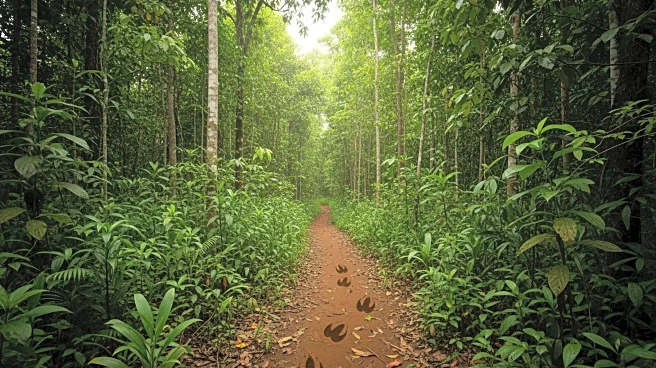What's Happening?
Brazil is facing a significant challenge with the uncontrolled growth of wild boars, which are causing extensive damage to crops and posing a threat to the country's agriculture and economy. Originally introduced in the 1980s for commercial breeding,
these animals have multiplied rapidly and are now present in over 20 states. The wild boars are responsible for millions of dollars in agricultural losses and are also vectors for diseases that could affect livestock and humans. The situation is exacerbated by the lack of natural predators and the boars' adaptability to various biomes.
Why It's Important?
The wild boar invasion is a critical issue for Brazil, one of the world's largest agricultural producers. The damage to crops such as corn, soybeans, and beans threatens food security and the economic stability of rural communities. Additionally, the potential for disease transmission poses a risk to the pork industry, a vital part of Brazil's agribusiness. The lack of coordinated control measures and bureaucratic hurdles in managing the population further complicate the situation, leaving many farmers feeling unsupported.
What's Next?
There is a growing call for national policies to address the wild boar problem. Agricultural sector representatives are urging the federal government to implement a unified control plan, which could include compensation for affected farmers and incentives for sustainable management practices. Without effective intervention, the wild boar population is expected to continue growing, leading to more significant economic and environmental impacts.
Beyond the Headlines
The wild boar issue also highlights broader environmental concerns, as these animals contribute to biodiversity loss and ecological imbalance. Their presence disrupts natural habitats and affects the regeneration of forests, posing long-term challenges for conservation efforts. Addressing this problem requires not only immediate action but also a sustainable approach to wildlife management and environmental protection.
















